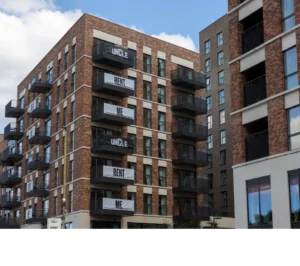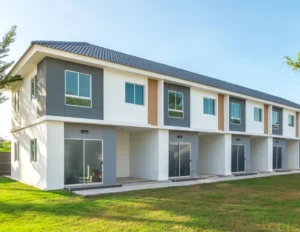Key Proposals to Revive Real Estate
by Ilyce Glink, Inman News
 My mailbox has been filled with letters from readers who wonder if the real estate market will reset itself now that the presidential election is over.”Can we expect the next four years to bring us a better real estate market? Will my house go back up in value,” one reader wrote.
My mailbox has been filled with letters from readers who wonder if the real estate market will reset itself now that the presidential election is over.”Can we expect the next four years to bring us a better real estate market? Will my house go back up in value,” one reader wrote.
Eventually, the real estate market will hit bottom and turn around. Perhaps it has already hit bottom (one can only hope), and now we are waiting for the “bumpy bottom,” as Alex Perriello, president and CEO of the Realogy Franchise Group, put it at the launch of its newest franchise, Better Homes & Garden Real Estate.
But as president-elect Barack Obama said in his acceptance speech earlier this month, there is a lot of work to be done, and not just by policy bureaucrats in Washington, D.C. Fixing the U.S. economy will require a shared responsibility between corporate America, federal and state governments, and U.S. residents.
While there’s no magic bullet, there are some suggestions floating around that might help the real estate market get moving again. The dialogue is just beginning and I encourage you to e-mail me with your own comments and suggestions, which I’ll include in a future column.
For what it’s worth, here are some suggestions worthy of consideration:
Keep people employed. If you don’t have a job, you can’t pay your bills. If you want to hold down the level of mortgage defaults, you have to keep people employed.
One way to do that is for the federal government to provide the funding for some major infrastructure programs all over the country, but particularly in places where the economy is suffering and foreclosures are the highest.
The country has plenty of infrastructure needs. Many infrastructure projects have completed planning and are just waiting for funding to be approved. Providing a big check for infrastructure construction will help fund necessary jobs and hold down unemployment. It should pay longer-term benefits than another one-time stimulus check.
Allow people with poorer credit to refinance their mortgages. FHA loans are available to fund loans for those with credit scores in the upper 500s. That’s low enough to give most borrowers the chance to refinance out of their adjustable-rate mortgages (ARMs).
Still, there are those who have missed a payment or two, and whose credit scores are now in the low 500s, who would like to get out from under their now-unaffordable pay-option adjustable-rate mortgages resetting at 10 percent or higher.
While I do believe there are some folks who used pay-option ARMs and other exotic loans to purchase homes they could never afford, a separate fund could be set up to refinance these mortgages, provided that the homeowners now have enough income to afford a regular 30-year fixed-rate mortgage at some low interest rate. In return, the government could institute an equity-sharing arrangement should the houses be sold within the first five years of granting the loan. This should help promote affordability and stability in neighborhoods that need it most.
Change the rules regarding refinancing of newly converted investment properties. When people are out of work or can’t sell their homes, they will try to rent them out, thus turning their primary residences into investment properties. But make no mistake: Most of these folks would sell these properties if they could.
As the owners of newly converted investment properties, they’re no longer able to take advantage of low rates and refinancing programs. In fact, the market for investment properties remains rather frozen: If you can get a loan, you’d better have plenty of equity (north of 30 percent in many cases) and a wad of cash to pay fees and a much higher interest rate.
By changing the residential mortgage lending rules to include properties that were primary residences within the past 60 to 180 days would provide some financial relief to homeowners who have moved to take new jobs — and hopefully hold down the number of foreclosures.
And as part of the shared responsibility:
Don’t walk away from your mortgage. I’ve received many letters from homeowners who are wondering whether they should just walk away from their properties now that they are worth so much less than the mortgage. What local real estate markets don’t need is to add to the number of homes going into foreclosure.
If you can refinance your mortgage to make it more affordable, you should do that. If you have to temporarily take a second job to keep enough cash coming in, then you should do that. There are long-term repercussions of going into foreclosure that should make this a final-resort option.
If you can’t sell your property, but you can afford your payments, consider staying in it for the next couple of years until the market stabilizes. Let other homes for sale in your neighborhood get absorbed by bottom-feeders and real estate investors while you shore up your financial house.
Again, these aren’t the only solutions worth considering. There is an interesting proposal floating around to have the federal government renegotiate mortgages on a grand scale using the model that the FDIC has used with the IndyMac Bank loans. Another proposal making the rounds would turn the $7,500 first-time buyer tax credit (which must be paid back at a rate of $500 per year or in full when the house sells) into a much larger tax credit that would not need to be repaid.
If you have an idea to help fix the real estate market, please e-mail me at [email protected].
To get even more valuable advice from Ilyce, visit her Personal Finance and Real Estate Center. What’s your opinion? Leave your comments below or send a letter to the editor. To contact the writer, click the byline at the top of the story.
Copyright 2008 Ilyce R. Glink
See Ilyce Glink’s feature, Refinancing Rental Property In Today’s Market.
See other articles on Real Estate Financing.
American Apartment Owners Association offers discounts on products and services related to your commercial housing investment including REAL ESTATE FORMS, tenant debt collection, tenant background checks, insurance and financing. Find out more at www.joinaaoa.org.
To subscribe to our blog, click here













 Accessibility
Accessibility